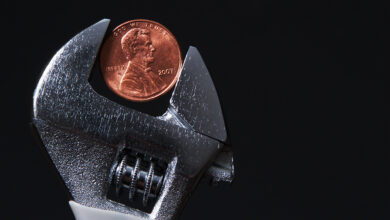KPI — April 2021: Recent Vehicle Recalls

2018-2020 Honda and Acura Models
Vehicles Affected: Nearly 628,000 Honda and Acura cars, minivans, pickup trucks and SUVs are being recalled. Models impacted include 2019 Accord Hybrid sedans; Civic and Civic Si coupes and sedans; Civic Type R and Fit hatchbacks; HR-V, Passport and Pilot SUVs; Ridgeline pickups; model-year 2019-2020 Accord sedans, Civic hatchbacks and Insight sedans and hatchbacks; and model-year 2018-2019 CR-V SUVs.
The Problem: The low-pressure fuel pump inside the fuel tank may contain defective impellers and fail, which could cause an engine stall while driving, thereby increasing the risk of a crash. Honda said it has not received any reports of crashes or injuries.
The Fix: Honda will begin notifying owners on May 18 and dealers will replace the fuel pump assembly for free.
2015-2020 Audi A3s
Vehicles Affected: More than 153,000 Audi A3 sedans and its variants are being recalled. Model-year 2015-2020 Audi A3 and S3 sedans and hatchbacks, model-year 2016-2018 A3 e-Tron hatchbacks, model-year 2017-2020 RS 3 performance sedans and model-year 2015-2019 A3 cabriolets are impacted.
The Problem: The passenger occupant detection system may malfunction and switch off the passenger airbag even when the seat is occupied, thereby increasing the risk of injury during a crash.
The Fix: A fix is still in development, but Audi will begin sending interim notices to owners on May 21.
2021 Cadillac, Chevrolet and GMC Full-Size SUVs
Vehicles Affected: The 2021 GM full-size SUV lineup is being recalled, including the Escalade, Escalade ESV, Suburban, Tahoe, Yukon and Yukon XL.
The Problem: The backseat outboard seat belts may have been entrapped or misrouted behind the outboard seat-folding mechanism. As a result, damaged seat belts can break in the event of a crash, thereby increasing the risk of injury.
The Fix: GM dealers will inspect the third-row outboard seat belts and reroute or replace any damaged ones for free. GM will begin notifying owners May 3, 2021.
2015-2016 Hyundai Genesis, 2017-2020 Genesis G80
Vehicles Affected: Nearly 94,000 model-year 2015-2016 Genesis and model-year 2017-2020 G80 sedans are being recalled.
The Problem: The issue stems from the antilock brake system module, resulting in malfunction and short circuit. An electrical short circuit inside the ABS module could cause an engine compartment fire when the sedan is parked or while driving. Thus, Hyundai recommends owners park outside and away from any structures until repairs have been made.
The Fix: To resolve the problem, dealers will replace the ABS module fuse for free. Hyundai will begin notifying owners May 7.
2018-2021 Nissan Titan and 2019-2020 Altima
Vehicles Affected: Nearly 127,000 model-year 2018-2021 Titan pickup trucks and model-year 2019-2020 Altima sedans are being recalled.
The Problem: There is a possibility one or more tires were cured for too long during Continental’s tire production. As a result, they may develop a break in the sidewall, resulting in sudden air loss or belt edge separation. This could lead to tread or belt loss, thereby increasing the risk of a crash.
The Fix: Dealers will inspect the tires and replace them for free, as necessary. Nissan will begin notifying owners April 28.
2019-2021 Audi Sedans/Coupes, 2020-2021 Wagons
Vehicles Affected: Nearly 3,400 model-year 2019-2021 A6 sedans and A7 coupes; model-year 2020-2021 A6 Allroad wagons, S6 sedans and S7 coupes; and model-year 2021 RS6 sedans and RS7 coupes are being recalled.
The Problem: The score line on the passenger airbag may not have been manufactured correctly, which could lead to it deploying improperly. VW said the airbag also could eject plastic debris into the cabin. Either instance increases the risk of injury in the event of a crash.
The Fix: Dealers will inspect the airbag score line and repair it for free, as necessary. Audi will begin notifying owners May 7.
2006-2008 Infiniti FX35, FX45 SUVs
Vehicles Affected: Nearly 26,000 model-year 2006-2008 Infiniti FX35s and FX45s are being recalled.
The Problem: The front passenger airbag is at risk, an issue that was previously recalled in January 2020 as part of a wider scheduled replacement for approximately 308,000 Nissan and Infiniti vehicles to replace remedy parts for the airbag assembly. Those replacements have an incorrectly folded airbag cushion, which could increase internal pressure and tear the airbag cushion during deployment, thereby increasing the risk of injury.
To Fix: Dealers will replace the front passenger airbag module at no cost. Infiniti will begin notifying owners April 18.
2016-2019 Nissan Sentra
Vehicles Affected: Nearly 807,000 model-year 2016-2019 Nissan Sentras are being recalled.
The Problem: The brakelight switch on the affected cars may become contaminated, which prevents the circuit from closing and the brakelights from illuminating, while also increasing the risk of a crash.
The Fix: Dealers will replace the brakelight switch and install a protective grommet for free. However, parts for the repair aren’t currently available and not expected until fall, so Nissan is issuing interim notices informing owners of the safety risk beginning April 7.
2017-2019 Kia Cadenza and 2017-2021 Sportage
Vehicles Affected: Nearly 380,000 model-year 2017-2019 Cadenza and 2017-2021 Sportage not equipped with Kia’s Smart Cruise Control adaptive cruise control system are being recalled.
The Problem: As with the Stinger, the component in question is the hydraulic electronic control unit. The electrical circuit in the unit may short-circuit, which can cause an engine fire, increasing the risk of injury. Until the repair is complete, owners are advised to park outside and away from structures as a precaution.
The Fix: Dealers will replace certain fuses in the electrical junction box as part of the recall. Vehicles equipped with an electronic parking brake also will receive a control unit software update. All repairs will be done for free, and the recall will begin April 30.
2020 Hyundai Ioniq and 2019-2020 Kona EVs
Vehicles Affected: Nearly 4,700 model-year 2020 Ioniq EV sedans and model-year 2019-2020 Kona Electric SUVs are being recalled.
The Problem: Hyundai is once again facing a fire scare, as it works to remedy a potential battery short circuit in two of its electric vehicles—the Ioniq EV and Kona Electric. The issue stems from the affected vehicles’ lithium-ion battery, which may short-circuit and increase the risk of a fire. Approximately 4,700 vehicles are part of a global recall that will reportedly cost the South Korean automaker and its battery supplier, LG Chem Ltd., some $900 million to fix. Significantly, it’s one of the first mass battery replacements conducted by a major automaker.
The Fix: Hyundai will notify owners beginning April 30. Battery replacement parts are not available yet, so owners are advised to park outside and away from structures until the interim repair is complete. That interim repair will require a battery update through the vehicle’s infotainment system. Once parts are available, dealers will replace the battery system assembly at no charge.
2015-2018 Porsche Macan
Vehicles Affected: More than 39,000 model-year 2017-2018 Macan and Macan GTS variants, as well as model-year 2015-2018 Macan S and Macan Turbo variants, are being recalled.
The Problem: The part in question is a front passenger seat occupancy sensor mat. The sensor mat may degrade and fail to detect if a passenger is present. As such, the airbag may not deploy during a crash if a front passenger is undetected, thereby increasing the risk of injury.
The Fix: Dealers will replace the sensor mat and seat cushion for free. The recall will begin May 2.
Takata Corp. Recall Update
Takata Corp. is responsible for the largest automotive recall in U.S. history, accounting for at least 67 million inflator recalls in tens of millions of vehicles, according to Cars.com.
“Takata’s faulty inflators can degrade after long-term humidity exposure and inflate with too much force during an airbag deployment, sending metal fragments into the vehicle’s cabin. Authorities have linked the crisis to at least 18 U.S. deaths and hundreds of injuries,” according to reports.
Ford to Recall 2.7 Million Vehicles for Takata Airbag Inflators: What Owners Need to Know
Similar to GM, Ford will recall approximately 2.7 million 2006-2012 cars, pickup trucks and SUVs for defective Takata airbag inflators. The move comes after federal authorities denied a 2017 petition for exemption in which Ford cited “inconsequentiality” in the potential defects of the inflators, given their differences in design and performance from earlier Takata inflators, according to Cars.com.
Current recalls are in addition to any existing recalls stemming from potentially faulty inflators. All three contemporaneous Ford brands were affected (Ford stopped producing Mercury vehicles in 2010), but they’re part of two distinct groups, according to the company.
Approximately 1,100 vehicles with collision repairs may have an obsolete Takata inflator. Most recently, both driver-side and passenger-side frontal airbag inflator modules are part of the recall.
- 2004-2011 Ford Ranger
- 2005-2014 Ford Mustang
- 2006 Ford GT
- 2007-2010 Ford Edge
- 2008-2012 Ford Fusion
- 2010-2012 Lincoln MKZ
- 2007-2010 Lincoln MKX
- 2009-2011 Mercury Milan
Forty-five missing single-stage inflators were identified. “It’s possible these obsolete Takata service parts were installed for repairs after collision damage or theft,” said Ford. The affected Rangers had the Takata permanent repair performed before the service parts were purged. At NHTSA’s request, Ford is issuing a safety recall for all 153,107 of these pickup trucks.
- 2004-2006 Ford Ranger
What happens next? Dealers will inspect the driver/passenger airbag inflator or module and replace if necessary. As it relates to the Ranger, vehicle owners can visit their dealer for an inspection and, if necessary, an airbag inflator replacement.
*All recall information is courtesy of Cars.com
KPI — April 2021: State of the Economy
Key Performance Indicators Report — April 2021



